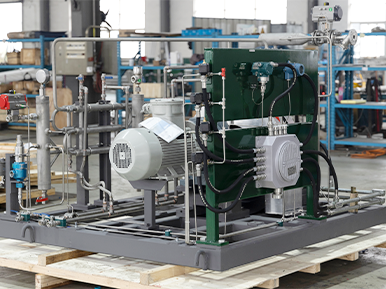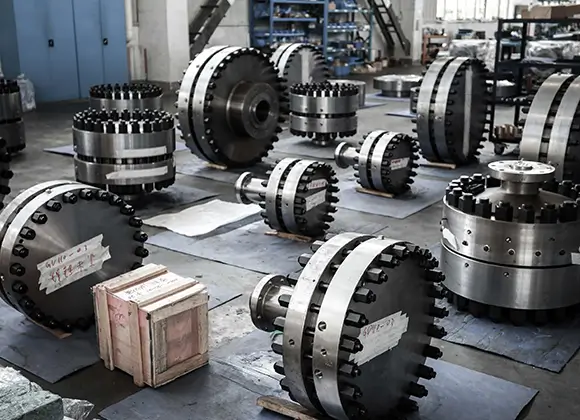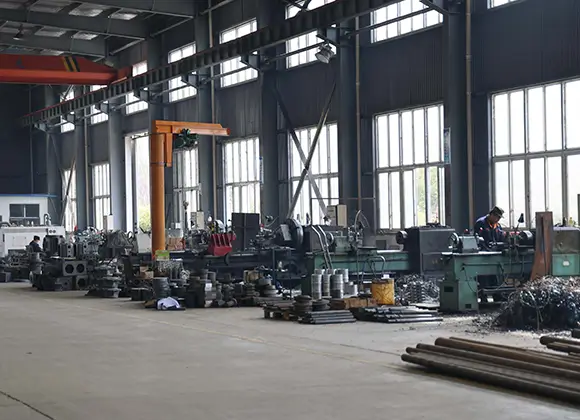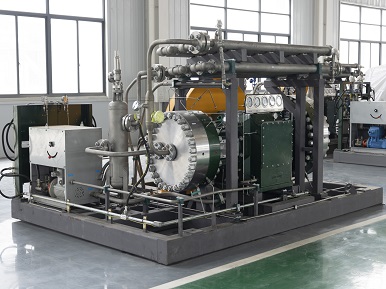

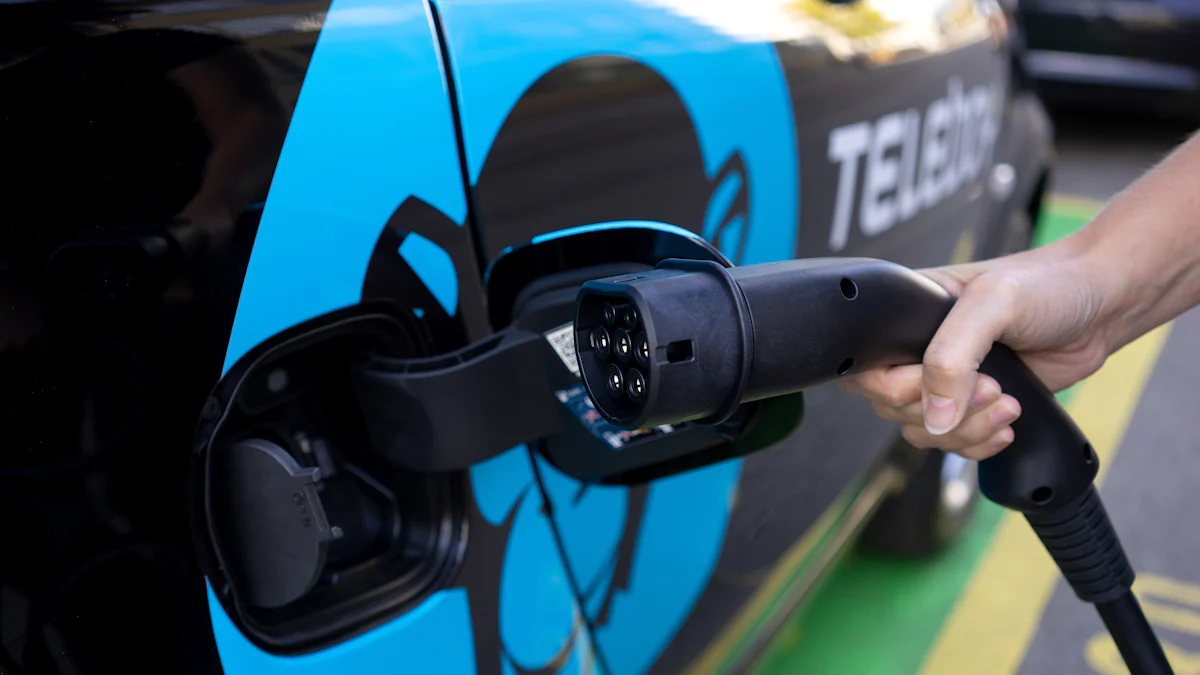
Hydrogen fueling stations rely on efficient production and storage systems. These systems ensure a steady supply of hydrogen for vehicles.
Electrolyzers play a crucial role in hydrogen production. These devices split water into hydrogen and oxygen using electricity. Reformers, on the other hand, extract hydrogen from natural gas. Both methods require significant investment. The choice between electrolyzers and reformers depends on the station's location and energy sources.
Storage tanks hold the produced hydrogen safely. These tanks must withstand high pressure. Safety measures are vital to prevent leaks and accidents. Regular inspections and maintenance ensure the integrity of storage systems. Hydrogen fueling stations prioritize safety to protect users and the environment.
Dispensing equipment delivers hydrogen to vehicles efficiently. This equipment forms the core of a hydrogen fueling station.
Fuel dispensers transfer hydrogen from storage tanks to vehicles. These dispensers use specialized nozzles. The nozzles ensure a secure connection during refueling. Accurate measurement systems track the amount of hydrogen dispensed. This precision ensures fair pricing for consumers.
Compression systems increase hydrogen pressure before dispensing. High-pressure hydrogen fills vehicle tanks quickly. These systems require regular maintenance. Proper functioning of compression systems is essential for efficient operation. Hydrogen fueling stations depend on reliable compression technology.
Infrastructure and utilities support the operation of hydrogen fueling stations. These components ensure seamless functionality.
Piping systems transport hydrogen within the station. These pipes must withstand high pressure and corrosion. Electrical systems power the entire station. Reliable electrical connections are necessary for all equipment. Hydrogen fueling stations invest in robust infrastructure to ensure longevity.
Control systems manage the station's operations. These systems monitor hydrogen levels and equipment status. Automated alerts notify staff of any issues. Monitoring ensures quick response to potential problems. Hydrogen fueling stations use advanced technology for efficient management.
Site selection plays a crucial role in the success of hydrogen fueling stations. You must evaluate potential locations thoroughly. Consider factors like accessibility and proximity to major roads. Environmental assessments identify any ecological impacts. These assessments ensure compliance with environmental regulations. You must address any concerns before proceeding.
Environmental assessments examine the potential impact on local ecosystems. These assessments help identify risks to wildlife and vegetation. You must mitigate these risks to protect the environment. Proper planning ensures minimal disruption during construction. Environmental assessments also consider air and water quality. Maintaining these standards is essential for sustainable development.
Zoning laws dictate where you can build hydrogen fueling stations. You must adhere to these regulations to avoid legal issues. Regulatory compliance involves obtaining necessary permits. These permits cover construction, operation, and safety standards. You must work closely with local authorities. This collaboration ensures smooth project execution.
Construction involves several stages that require careful planning. Civil engineering plays a vital role in this process. Engineers design the layout and structure of the station. You must consider factors like soil stability and drainage. Construction costs vary based on location and materials used.
Civil engineering involves designing the station's infrastructure. Engineers create plans for foundations and support structures. Construction costs include labor, materials, and equipment. You must budget for unexpected expenses. Proper financial planning ensures project completion within budget. Cost management is crucial for long-term profitability.
Installation involves setting up hydrogen production and storage systems. You must ensure proper alignment and connection of all components. Safety measures are a top priority during installation. Regular inspections verify the integrity of installed systems. You must train staff to operate and maintain equipment. Skilled personnel ensure efficient and safe station operation.
Hydrogen fueling stations require regular maintenance to ensure smooth operation. Routine maintenance involves checking equipment and systems for any issues. Technicians inspect hydrogen dispensers, storage tanks, and compression systems. Regular inspections help prevent major breakdowns. Maintenance costs vary based on the station's size and complexity. You must allocate funds for routine maintenance to keep the station running efficiently.
Routine maintenance includes tasks like cleaning and lubricating equipment. Technicians replace worn-out parts to prevent malfunctions. Regular updates to software systems ensure optimal performance. Budgeting for routine maintenance helps avoid unexpected expenses. Consistent upkeep extends the lifespan of station components.
Unexpected repairs can occur due to equipment failure or accidents. These repairs may involve replacing damaged parts or systems. Upgrades improve station efficiency and safety. Technological advancements may require equipment updates. You must plan for unexpected repairs and upgrades in the budget. Proper financial planning ensures quick response to unforeseen issues.
Operational costs encompass various expenses necessary for station functionality. Staffing and training are crucial for efficient operations. Utility and energy costs contribute significantly to operational expenses.
Qualified staff operate and maintain hydrogen fueling stations. Employees undergo training to handle equipment safely. Training programs cover hydrogen handling and emergency procedures. Skilled personnel ensure smooth station operations. Staffing costs include salaries, benefits, and training expenses. Investing in staff training enhances safety and efficiency.
Hydrogen fueling stations consume electricity for production and compression. Utility costs depend on the station's size and hydrogen demand. Energy-efficient systems reduce electricity consumption. Renewable energy sources lower utility expenses. Monitoring energy usage helps identify areas for improvement. Efficient energy management reduces operational costs.
Government grants and incentives play a crucial role in funding hydrogen fueling stations. These financial aids help reduce the initial investment burden. Developers can access various programs to support their projects.
Federal and state programs provide substantial funding for hydrogen infrastructure. The Federal Hydrogen Refueling Station Funding Act allocates $2.5 billion over six years. This program aims to develop over 1,500 stations nationwide. State programs also offer grants to cover equipment costs. These initiatives encourage the growth of hydrogen refueling networks.
Tax credits and rebates offer additional financial relief. These incentives reduce the overall cost of station installation. Developers can claim credits for using clean energy technologies. Rebates further decrease expenses by refunding a portion of the investment. These financial benefits make hydrogen stations more affordable.
Private investments and partnerships provide alternative funding sources. These collaborations bring together industry leaders and investors. Joint efforts accelerate the development of hydrogen infrastructure.
Industry collaborations foster innovation and resource sharing. Companies pool their expertise to advance hydrogen technology. Partnerships enhance research and development efforts. Collaborative projects receive support from multiple stakeholders. This cooperation leads to efficient and cost-effective solutions.
Venture capital and private equity firms invest in promising technologies. These investors seek opportunities in the hydrogen sector. Funding from these sources supports station construction and expansion. Private equity firms provide capital for large-scale projects. Venture capitalists back innovative startups with growth potential. These investments drive progress in hydrogen fueling infrastructure.
Hydrogen fueling stations require significant investment, with costs ranging from $1.5 million to $5 million. You must consider the long-term benefits of these stations. Hydrogen fuel offers a sustainable energy solution. The global shift towards clean energy increases interest in hydrogen. Hydrogen stations support the adoption of hydrogen fuel cell vehicles. You should view hydrogen stations as a viable investment. These stations play a crucial role in advancing clean energy infrastructure. Investing in hydrogen stations contributes to a sustainable future.
